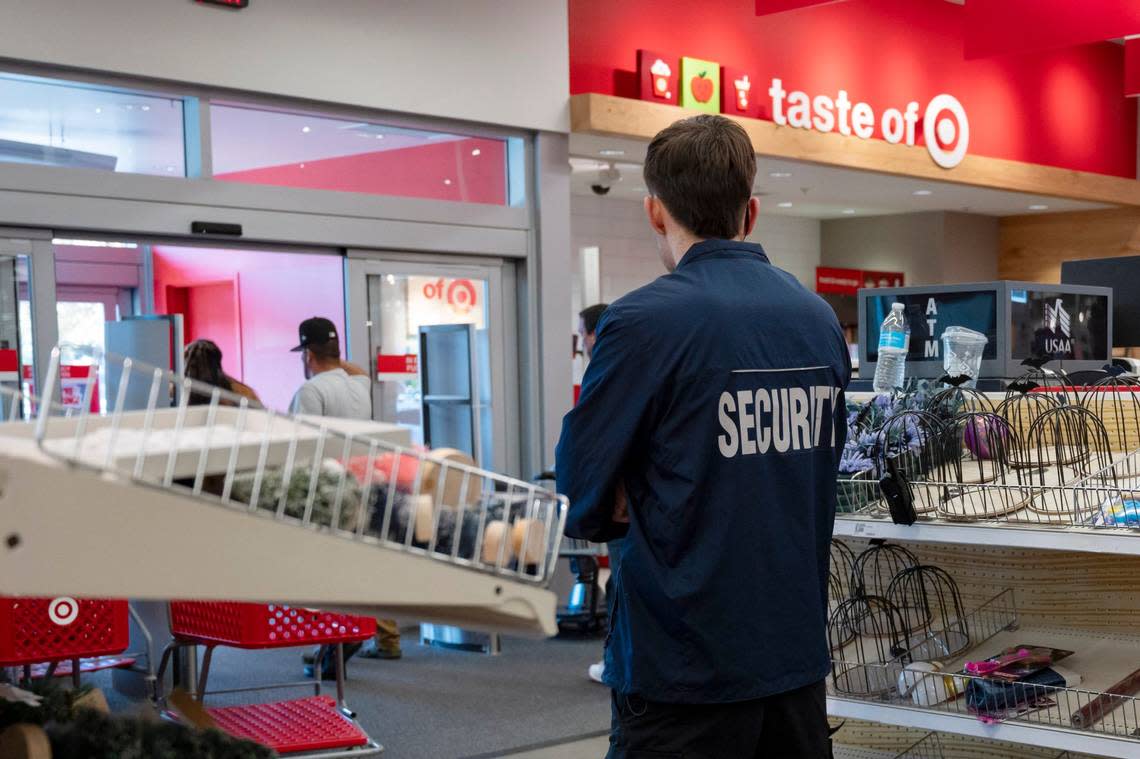What are the solutions for retail theft in California? Sacramento sheriff, prosecutors have ideas

How can California and the capital region solve retail theft? Law enforcement and policymakers explored the first steps Thursday during a hearing of the Little Hoover Commission, the state’s independent oversight agency, ahead of the Legislature’s first select committee hearing on the matter.
The commission, an agency tasked with investigating state government operations and efficiency, has been studying the issue of retail theft since being asked to do so in a letter by more than 60 members of the Legislature.
But Thursday’s hearing spotlighted front-line stakeholders: The California Highway Patrol, Sacramento County Sheriff Jim Cooper, California Retailers Association President Rachel Michelin and county prosecutors
Speakers said retail theft has grown since the COVID-19 pandemic, with many blaming Proposition 47. But several Little Hoover commissioners said they sought data from prosecutors and retailers to fully understand the full scope of the crimes, saying there’s not a clear picture of the overall trend of the theft.
Prop. 47, a ballot initiative that passed in 2014, reclassified some nonviolent property crimes to be misdemeanors that caused losses costing less than $950.
“How can we address this mountainous challenge in a manner that is well informed, surgical and not Draconian,” Yolo County Chief Deputy District Attorney Jonathan Ravenwood, who testified, asked rhetorically.
Several seemingly disparate problems have contributed to problems with shoplifting, speakers said.
Many people go from place to place stealing just under a $950 threshold and then get charged with multiple misdemeanors, which still amounts to a citation, Ravenwood said.
A citation requires suspects to appear in court but many don’t comply, said Cooper. There are more than 30,000 outstanding misdemeanor warrants locally, he said.
Even if a person was arrested by law enforcement, there isn’t room in the jails, Cooper said.
That’s why retailers and law enforcement called for repeated offenders to then be charged with a felony.
Ravenwood noted some suspects have an underlying drug problem, motivating their theft, and don’t get help for their addiction after getting charged with a misdemeanor. The court process doesn’t allow them to get assigned to a diversion program that could help solve their addiction issues, he said.
But Cooper said even if a repeat offender faces a felony, there’s still no room for jails, mainly holding violent offenders.
That’s not what most people see when they think of retail theft.
Other varieties of the theft include organized retail crime rings — portrayed on viral social media videos as so-called smash-and-grab robberies — or individuals often experiencing homelessness, said Marc Beaart, the director of fraud and corruption prosecutions at the Los Angeles County District Attorney’s Office.
To combat organized retail theft, Beaart said laws are sufficient to charge suspects with felonies and have them do prison time. Prop. 47 doesn’t impede them because they can charge suspects with felonies.
“We have adequate resources given to us by the state and the Legislature,” he said.
The hearing also featured Cooper and Michelin, the president of the state’s retailers’ association, once again trading insults.
Cooper has heavily criticized Michelin this year for failing to address what he said are Prop. 47’s shortcomings.
“They are liars,” Cooper said when asked about big corporations. “I don’t trust anything retailers say.”
Michelin also said law enforcement doesn’t respond to retail theft incidents.
The select committee on retail theft will meet Tuesday. The Little Hoover Commission is scheduled to meet on Jan. 25 again to discuss retail theft.
